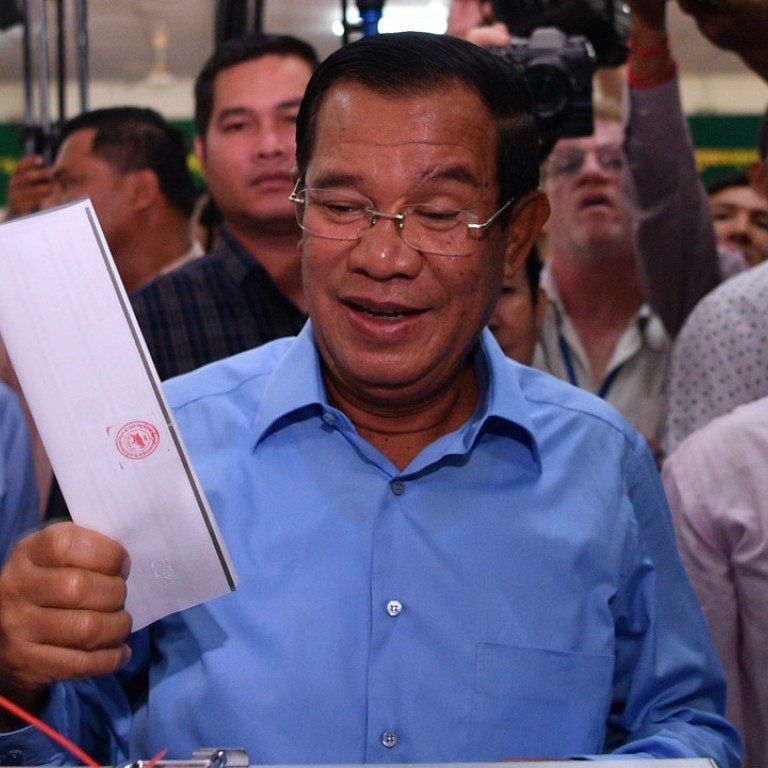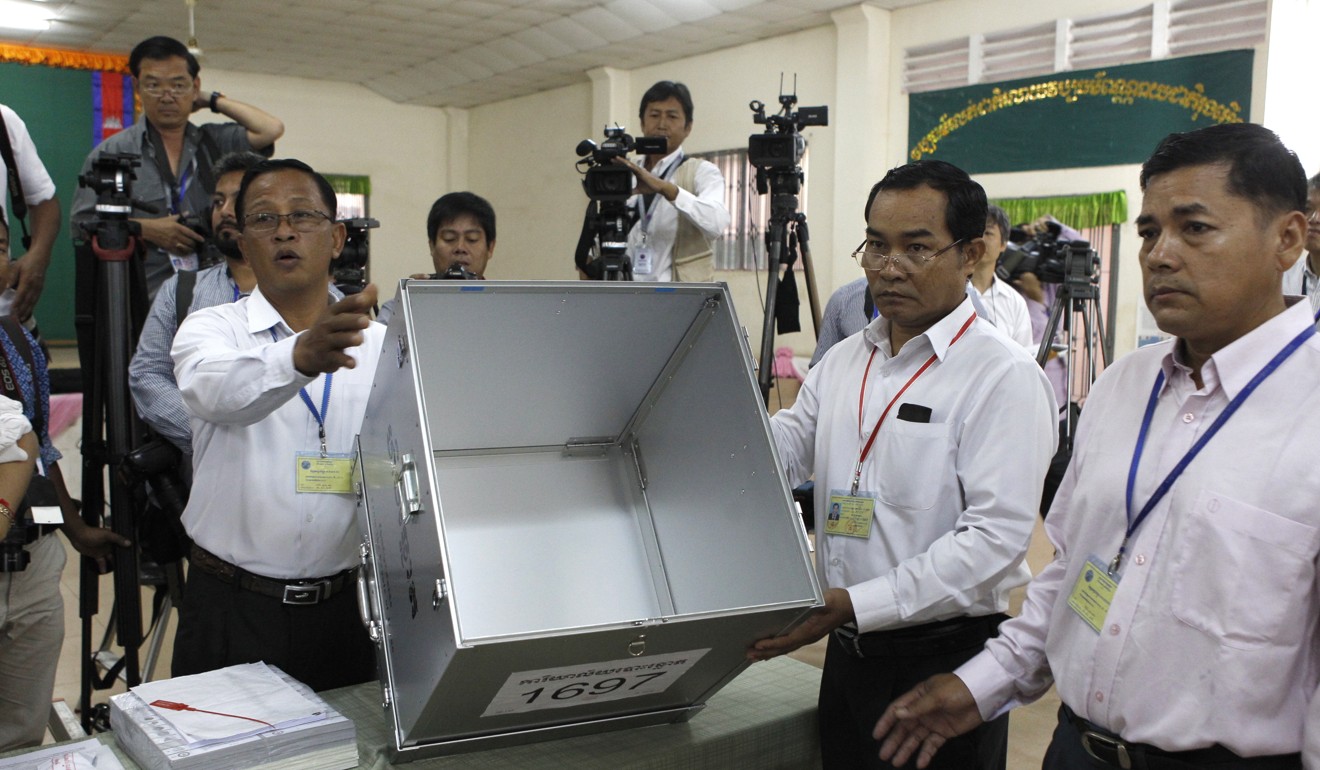
Developing | Cambodian ruling party claims landslide victory in ‘sham election’, with strongman Hun Sen set to extend his 33-year rule
The US and EU have pulled funding and help for the vote, but Cambodia’s staunch ally China has provided support with US$20 million for equipment, including voting booths, laptops and computers
Cambodia’s ruling party claimed a landslide win in Sunday’s one-horse election, an expected outcome after the main opposition was banned, paving the way for its leader Hun Sen to prolong his 33 years in power.
Hun Sen, who came to power in 1985 in a country still plagued by civil war, has cracked down on dissent in the run-up to the poll, pressuring civil society, independent media and his political opponents.
CPP spokesman Sok Eysan said his party won an estimated 100 out of 125 parliamentary seats.
“The CPP won 80 per cent of all the votes and we estimate we will win not less than 100 seats,” Sok Eysan said.

The 65-year-old prime minister, a one-time defector from the brutal Khmer Rouge regime, has pointed to stability and growth as the fruits of his rule – a message that resonates with his base.
“Compatriots have chosen the democratic path and used your rights,” Hun Sen said on his official Facebook page in an apparent swipe at the opposition, which called for a boycott.
A ruling party spokesperson forecast a huge victory. But there were also signs of despondency and indifference, and an expert on elections in Southeast Asia said the high turnout was misleading.
“With one-party rule election turnout is generally higher, not lower, because the party, in this case the Cambodian People’s Party, relies on voter intimidation more, relies on vote buying more, and turnout should be inflated that way,” said Lee Morgenbesser from the school of government and international relations at Griffith University.
Pictures of spoilt ballots circulated on social media though they could not be independently verified.
“I did not go to vote. I slept at home,” said Khem Chan Vannak, a former commune chief elected with the now-banned opposition Cambodia National Rescue Party (CNRP). “A lot of my friends did not go to vote.”
Hun Sen’s Cambodia election: like a World Cup, with just one team
The CNRP appealed to Cambodians not to vote in the “sham election that has no support and is not recognised by the international community”.
More than 8 million voters are registered for the sixth general election since polls organised by the United Nations in 1993.
At the time the country was slowly emerging from decades of war, including the Khmer Rouge years from 1975-79 which killed a quarter of the population.
Hun Sen was installed aged just 32 as national leader during the Vietnamese occupation of 1979-89.
But a youthful population angered by corruption and with little memory of the Khmer Rouge era put the ruling party’s longevity in doubt.
This is a story of how democratic dreams die under the fist of a dictator
Their votes helped the CNRP to secure more than 44 per cent of the vote in 2013 and a similar share in local elections last year.
“The CNRP offered a promise of responsive and non-corrupt governance, and people wanted to give them a chance,” said Phil Robertson, deputy director of the Asia division of Human Rights Watch.
But Hun Sen snuffed out the looming electoral threat, accusing the rescue party of being involved in a plot to topple the government and arresting leader Kem Sokha.
“This is a story of how democratic dreams die under the fist of a dictator,” Robertson added.
The Supreme Court dissolved the party in November 2017, clearing the way for a CPP whitewash on Sunday.
A climate of fear driven by local-level ruling party members has made many reluctant openly to criticise the vote.
The election committee, which has been accused of being biased towards the ruling party, claimed there was no voter intimidation.
Hun Sen has maintained his grip on the country through political and family alliances in the police, military and media.
With control over vast parts of the state, he has placed his sons in key positions in what analysts see as an attempt to create a dynasty.
Cambodian election: what chance does the opposition have?
The CNRP appealed to Cambodians not to vote in the “sham election that has no support and is not recognised by the international community”.
Authorities have vowed to take action against anyone who urges a poll boycott even though they insist voting is not compulsory.
The US and EU have pulled funding and help for the vote, but Cambodia’s staunch ally China has provided support with US$20 million for equipment, including voting booths, laptops and computers.
This month, US security-research firm FireEye said it found evidence of a Chinese hacking team infiltrating computer systems belonging to Cambodia’s election commission, opposition leaders and the media.
China was by far the biggest investor in Cambodia, outlaying US$12.6 billion in foreign investment since 1994, according to the Council for the Development of Cambodia. It’s also Cambodia’s biggest trade partner.
“Chinese support has allowed them to be much more open and confident in their spurning of human rights norms, so there is some enabling effect,” said Sebastian Strangio, author of the book Hun Sen’s Cambodia.

.png?itok=arIb17P0)